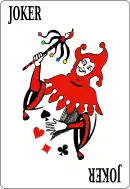konge
See also: kòng'é
Danish
Etymology
Older konning, from Old Norse konungr (“king”), from Proto-Germanic *kuningaz (“king”), cognate with Swedish konung, English king, German König, Dutch koning. Derived from *kunją (“kin, clan”) (Danish køn).
Pronunciation
- IPA(key): /kɔnɡə/, [ˈkʰʌŋə]
Declension
Derived terms
- arvekonge
- barnekonge
- bladkonge
- byggekonge
- enevoldskonge
- flugtkonge
- kattekonge
- kongeby
- kongedatter
- kongedømme
- kongefamilie
- kongegrav
- kongelig
- kongenavn
- kongeslot
- kongesøn
- kongsemne
- kongsgård
- kongstanke
- modekonge
- rejsekonge
- sagnkonge
- stodderkonge
- udbryderkonge
Related terms
Norwegian Bokmål
Etymology
From Old Norse konungr and kongr, from Proto-Germanic *kuningaz (“king”).
Noun
konge m (definite singular kongen, indefinite plural konger, definite plural kongene)
- king
- a male monarch
- a playing piece in chess
- a playing card with the image of a king on it
Derived terms
Terms derived from konge
|
Norwegian Nynorsk
Etymology
From Old Norse kongr and konungr, from Proto-Germanic *kuningaz. Akin to English king. The adjective is derived from the noun.
Pronunciation
- IPA(key): [²kɞ̞ɲ.ʝə], [²kɞ̞ŋ.ɡə], [²kɞ̞ŋ.ŋə]
Noun
konge m (definite singular kongen, indefinite plural kongar, definite plural kongane)
- king
- a male monarch
- a playing piece in chess
- a playing card with the image of a king on it
Derived terms
Terms derived from konge
Related terms
Adjective
konge (singular and plural konge)
References
- “konge” in The Nynorsk Dictionary.
This article is issued from Wiktionary. The text is licensed under Creative Commons - Attribution - Sharealike. Additional terms may apply for the media files.






